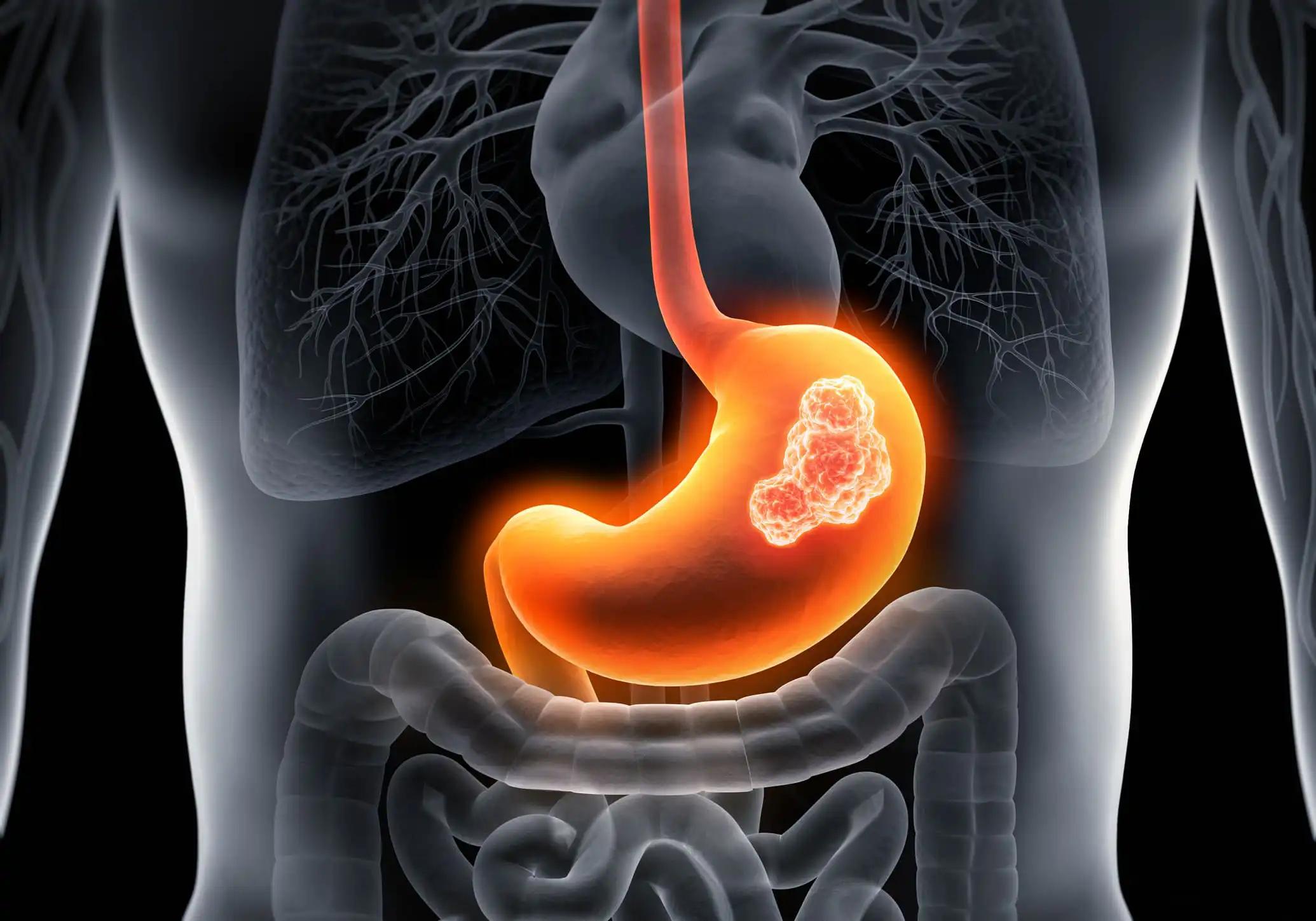KEY TAKEAWAYS
- The Phase 3 KEYNOTE-062 study evaluated the efficacy and safety of first-line pembrolizumab monotherapy or in combination with chemotherapy compared to chemotherapy alone for Asian patients with programmed death ligand 1 (PD-L1) positive, advanced gastric/gastroesophageal junction cancer.
- Median overall survival was numerically longer with pembrolizumab monotherapy or in combination with chemotherapy than in the PD-L1 CPS ≥1 and CPS ≥10 populations.
- Grade 3-5 treatment-related adverse event rate was 19.4%, 75.8%, and 64.9% for patients receiving pembrolizumab, pembrolizumab plus chemotherapy, and chemotherapy, respectively.
- The findings suggest that pembrolizumab monotherapy may improve overall survival and demonstrate a favorable tolerability profile compared to chemotherapy for Asian patients with PD-L1 positive advanced gastric/gastroesophageal junction cancer.
In the KEYNOTE-062 study, people with gastric cancer/gastroesophageal junction cancer had a programmed death ligand 1 combined positive score ≥ 1 or had locally advanced/unresectable or metastatic gastric cancer/gastrooesophageal junction cancer were given pembrolizumab with or without chemotherapy or chemotherapy. Researchers reviewed the results for patients who were enrolled in Asia.
Eligible patients were given 200 mg of pembrolizumab plus chemotherapy (cisplatin + 5-fluorouracil or capecitabine) or placebo plus chemotherapy Q3W. Endpoints included overall survival (primary) in populations with a combined positive score ≥ 1 and ≥ 10 and safety and tolerability (secondary).
In Asia, 187 patients were enrolled (n = 62 for pembrolizumab, n = 64 for pembrolizumab plus chemotherapy, and n = 61 for chemotherapy). Compared to the world population, more patients with Eastern Cooperative Oncology Group performance status 0 and stomach cancer. In the group of people with a programmed death ligand 1 combined positive score of 1, the median overall survival was longer with pembrolizumab than with chemotherapy (22.7 months vs. 13.8 months; hazard ratio, 0.54; 95% confidence interval, 0.35-0.82) and with pembrolizumab plus chemotherapy than with chemotherapy (16.5 months vs. 13.8 months; hazard ratio, 0.78; 95% confidence interval, 0.53-1.16).
In the group of people with a programmed death ligand 1 combined positive score of 10, the median overall survival was also longer with pembrolizumab than with chemotherapy (28.5 months vs. 14.8 months; hazard ratio, 0.43; 95% confidence interval, 0.20–0.89) and pembrolizumab plus chemotherapy than with chemotherapy (17.5 months vs. 14.8 months; hazard ratio, 0.86; 95% confidence interval, 0.45–1.64). The rate of treatment-related side effects of grades 3 to 5 was 19.4%, 75.8%, and 64.9% for patients who got pembrolizumab, pembrolizumab plus chemotherapy, and chemotherapy, respectively.
The post hoc analysis showed that pembrolizumab monotherapy was associated with better overall survival and a better tolerability profile than chemotherapy in Asians with programmed death ligand 1-positive advanced gastric cancer/gastrooesophageal junction cancer.
Source: https://academic.oup.com/jjco/advance-article/doi/10.1093/jjco/hyac188/6931733?login=false
Clinical Trial: https://clinicaltrials.gov/ct2/show/NCT02494583
Satake H, Lee KW, Chung HC, Lee J, Yamaguchi K, Chen JS, Yoshikawa T, Amagai K, Yeh KH, Goto M, Chao Y, Lam KO, Han SR, Shiratori S, Shah S, Shitara K. Pembrolizumab or pembrolizumab plus chemotherapy versus standard of care chemotherapy in patients with advanced gastric or gastroesophageal junction adenocarcinoma: Asian subgroup analysis of KEYNOTE-062. Jpn J Clin Oncol. 2022 Dec 18:hyac188. doi: 10.1093/jjco/hyac188. Epub ahead of print. PMID: 36533429.



